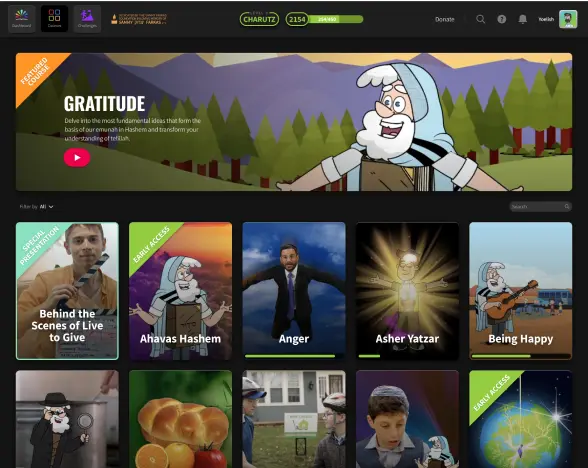Unlocking the Power of Purpose: Transforming Everyday Actions on Shabbos
Have you ever caught yourself doing something simply out of habit, only to realize you have no idea why you started in the first place? Think about making a cup of tea on autopilot, driving to work along the “usual route,” or scrolling through your phone before bed. Now imagine: what if the intention behind our actions could dramatically change their impact—not just for us, but for the world around us?
Welcome to a fascinating journey into the heart of Shabbos and the magic of purpose.
The Purpose That Makes All the Difference
In today’s fast-paced world, it’s easy to treat actions as items to cross off a checklist. But both Jewish wisdom and psychological studies teach us that why we do something often matters just as much as what we do.
On Shabbos, the 39 “melachos”—the primary forms of creative work—are forbidden because they were essential to building the Mishkan (the Tabernacle). And here’s the twist: it’s not just the act itself, but the intention and purpose behind it that determines its true effect and its status in Jewish law.
In the Mishkan, each melacha was performed for a specific, constructive outcome. If we do the same action on Shabbos, but with a fundamentally different intent, it’s called a “melacha she’eina tzricha legufa” — a melacha not needed for its own sake.
A Tale of Two Diggings: The Power of Intent
Let’s bring this down to earth—literally! Picture two scenarios:
- Building the Mishkan: Plowing a hole in the ground to plant seeds. The goal? To grow life and help build something holy.
- At Home on Shabbos: Digging a hole just because you need a pile of dirt for your backyard project, with no intention of planting anything.
In both cases, you’re digging a hole. But your purpose is totally different. In the Mishkan, the hole itself was the goal; at home, your goal is the dirt. In Jewish law, digging for a different purpose is still forbidden on Shabbos—but it’s considered “rabbinically prohibited,” not on the same level as digging in the Mishkan.
This distinction is called “melacha she’eina tzricha legufa” (“a melacha not for its own sake”). It shows us how Judaism weaves intention—not just action—into the very fabric of our spiritual lives.
Modern Wisdom Meets Ancient Teaching
If you think this is just abstract legal discussion, think again! Psychology research (like Viktor Frankl’s classic work on meaning) reveals that people who act with purpose are more resilient, satisfied, and fulfilled. Dr. Adam Grant found that meaningfulness at work is the single most important factor in job satisfaction.
In Jewish thought, we see the same idea: We are wired for purpose. When our actions are connected to a meaningful intent, even the routine becomes holy. As the Torah teaches, it’s not just about living “by the rules.” It’s about infusing every moment—with others, with God, with ourselves—with thought and purpose.
Action Step: Reclaim Your Purpose!
Ready to put this wisdom into action? Here’s how you can use the power of purpose—this Shabbos and beyond:
- Pause and Ask “Why?” Before any activity, ask yourself, “Am I doing this out of habit, or with intention?” Even little things, like setting the Shabbos table, can be transformed when done with gratitude and awareness of their deeper meaning.
- Journal Your Intentions: Take a minute before Shabbos to jot down one purposeful intention for the day—such as “I want my conversations at the table to build connection” or “I’d like to rest with gratitude.”
- Turn Routine into Ritual: Find one habitual action (lighting candles, blessing the challah, cleaning up) and do it with mindfulness, connecting it back to the purpose it serves in your life and in the Jewish story.
Smooth Transitions for Everyday Life
Understanding the “why” behind our actions on Shabbos is a perfect gateway to living more purposefully all week long. Just as dragging a chair in the garden depends on your intention—and sometimes, on whether the outcome is inevitable—so does your daily routine. Try asking yourself: “Is my action aligned with what matters most to me right now?”
A Thought to Take with You
The next time you find yourself on autopilot, whether on Shabbos or a Tuesday afternoon, remember: your purpose can transform the ordinary into the extraordinary. That’s the Torah’s timeless invitation—one that contemporary psychology only just started to rediscover.
Want to keep growing and unlock more amazing insights? Experience Torah Live’s treasure trove of 100% clean, 100% fun Jewish videos, games, and challenges for the whole family. Sign up FREE at TorahLive.com/signup and step onto your journey of purposeful living—one week, and one meaningful action, at a time!
Coming up next: Threshing – Explore classic and modern-day dosh, and how it applies on Shabbos! Stay tuned...
